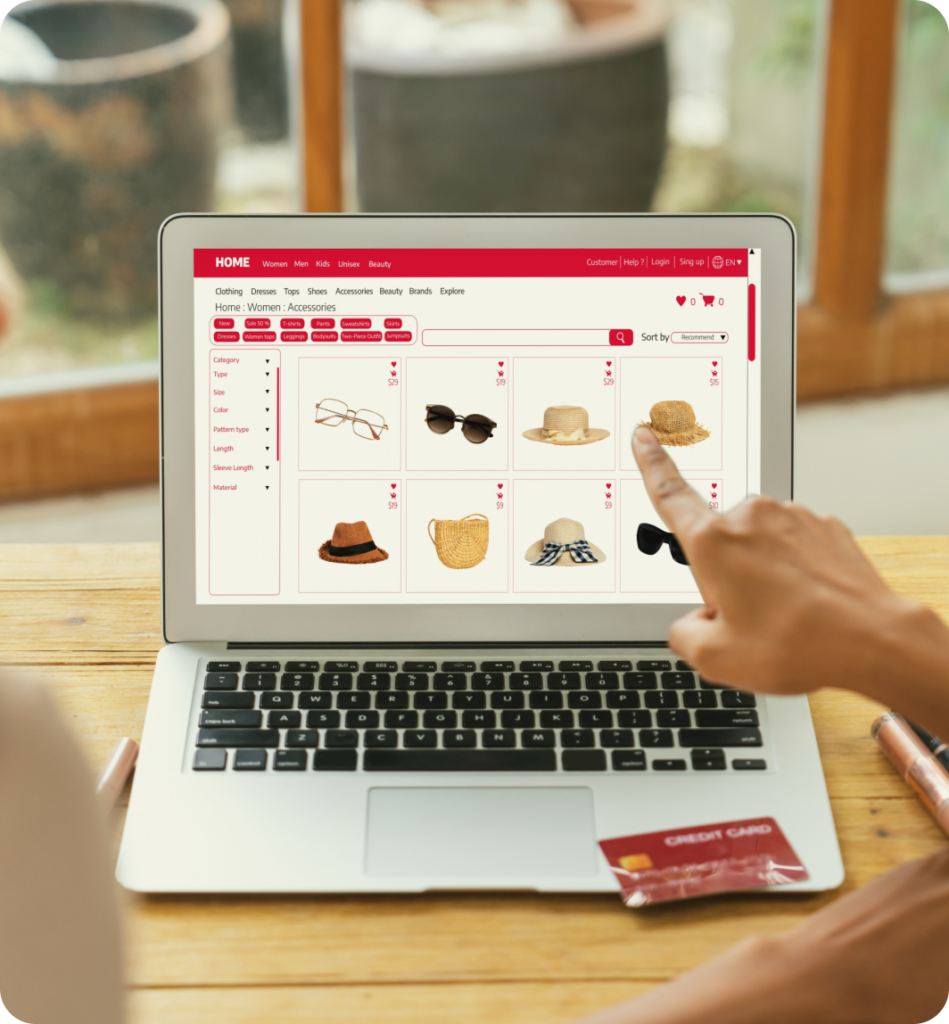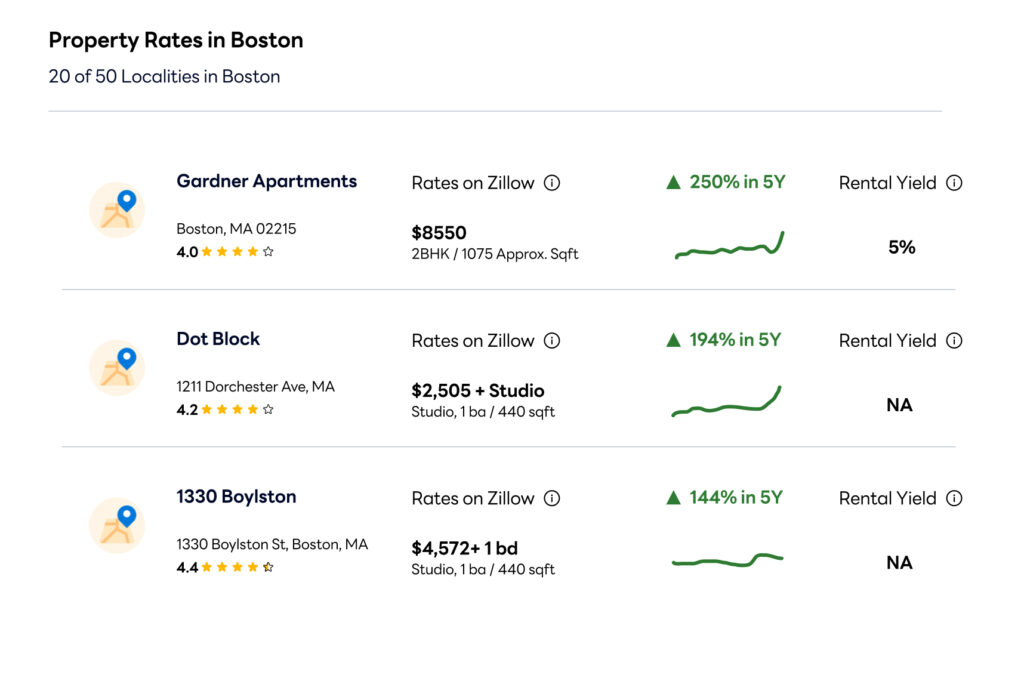A Comprehensive Guide to Web Scraping Services: Ecommerce, Real Estate, Food, and Mobile App Data
November 14, 2024
In today’s data-driven world, businesses are leveraging web scraping services to gain critical insights, improve customer experiences, and drive competitive advantages. Web scraping enables automated extraction of large volumes of data from websites, providing businesses with data that would otherwise require extensive manual collection. Whether it’s for ecommerce, real estate, food, or mobile apps, web […]
Introduction
In today’s data-driven world, businesses are leveraging web scraping services to gain critical insights, improve customer experiences, and drive competitive advantages. Web scraping enables automated extraction of large volumes of data from websites, providing businesses with data that would otherwise require extensive manual collection. Whether it’s for ecommerce, real estate, food, or mobile apps, web scraping has become essential for gathering up-to-date information in a fast-paced market.
Let’s explore how web scraping services are reshaping different sectors, from ecommerce to real estate, food, and mobile apps, and the benefits they offer.
1. Ecommerce Data Scraping

Why Scrape Ecommerce Data?
The ecommerce industry is one of the most dynamic sectors today, characterized by fierce competition and rapidly changing trends. Web scraping services in ecommerce focus on extracting product information, customer reviews, pricing, and competitor analysis data. With ecommerce data scraping, businesses can optimize their strategies, forecast trends, and align themselves with market demands.
Key Benefits of Ecommerce Data Scraping
- Pricing Intelligence: Dynamic pricing models require a real-time view of competitor pricing. Web scraping services help monitor competitor prices across platforms, enabling businesses to adjust their own prices accordingly.
- Product Data Monitoring: Scraping product descriptions, SKUs, and availability helps businesses stay updated with inventory changes and product launches.
- Customer Sentiment Analysis: Gathering customer reviews and ratings offers insights into consumer preferences, satisfaction levels, and potential product improvements.
- Market Trend Identification: Analyzing trends in product categories, brands, and seasonal demand assists businesses in aligning their strategies with evolving market trends.
2. Real Estate Data Scraping

Why Scrape Real Estate Data?
The real estate industry relies on accurate, current information for property listings, pricing trends, and location-based data. Web scraping services in real estate are used to extract data on property prices, rental rates, neighborhood features, and real estate agent reviews. This data supports property valuation, trend forecasting, and investment decisions.
Key Benefits of Real Estate Data Scraping
- Market Analysis: Web scraping real estate listings, property descriptions, and historical price trends helps investors make informed decisions on property investments.
- Comparative Pricing: With access to current and historical pricing data, businesses and investors can compare property prices across neighborhoods, ensuring fair pricing.
- Location Insights: Extracting data on nearby amenities, school ratings, crime rates, and demographics supports decisions on property value and marketability.
- Rental Trends: For rental property managers and investors, data on rental rates, vacancy rates, and seasonal demand assists in optimizing rental pricing strategies.
3. Food Data Scraping

Why Scrape Food Data?
For food and beverage businesses, web scraping helps gather critical information on restaurant menus, pricing, ingredient lists, and customer preferences. This data can support menu development, pricing strategies, and targeted marketing efforts in the competitive food industry.
Key Benefits of Food Data Scraping
- Menu and Pricing Analysis: Extracting menu information and pricing from competitor websites provides insights into popular dishes, regional pricing trends, and emerging culinary trends.
- Customer Preference Insights: Scraping review sites and social media enables businesses to understand what consumers like or dislike, guiding menu adjustments and new product launches.
- Supply Chain Optimization: Data on food ingredient availability, cost, and seasonal trends assists in managing inventory and supplier choices.
- Regional Trend Identification: Analyzing data from different geographic regions reveals location-specific food preferences, enabling better-targeted campaigns.
4. Mobile Apps Data Scraping
Why Scrape Mobile Apps Data?
Mobile app data scraping is used by app developers, marketers, and product managers to extract valuable data on app performance, user reviews, ratings, and feature updates. As the mobile app ecosystem is highly competitive, having access to this data enables businesses to monitor trends, assess market opportunities, and refine their own apps.
Key Benefits of Mobile Apps Data Scraping
- Competitor Monitoring: Scraping data on app updates, features, and reviews from app stores allows businesses to stay competitive by understanding what features attract or deter users.
- User Feedback Analysis: Aggregating reviews and ratings gives direct insight into user experience, revealing pain points, feature requests, and areas for improvement.
- App Store Optimization (ASO): Collecting data on keywords, top charts, and popular categories aids in ASO strategies to increase app visibility and downloads.
- Market Research: By analyzing data across similar apps, businesses can identify successful features, pricing models, and monetization strategies, supporting strategic app development.
Choosing the Right Web Scraping Service Provider
Choosing a web scraping service provider is key to maximizing the value of web-scraped data. Here are essential factors to consider:
- Data Accuracy and Relevancy: The provider should have a proven track record for delivering accurate, up-to-date data.
- Compliance and Security: A reputable provider follows ethical scraping practices and ensures data privacy and security, avoiding legal risks.
- Customization and Scalability: Providers should offer customizable scraping solutions that can scale with your business needs.
- Data Delivery and Integration: Consider how the data will be delivered and integrated into your existing systems, whether through APIs, CSV files, or cloud storage.
Final Thoughts
Web scraping services offer businesses across industries a significant edge by automating data collection and providing a wealth of market insights. For ecommerce, real estate, food, and mobile app sectors, web scraping opens up the potential for highly targeted, data-driven strategies that drive customer satisfaction and business growth. As more businesses seek to be data-centric, web scraping is fast becoming an indispensable part of modern business intelligence.
Recent Post
Recommended Blogs
Let’s Discuss your Ideas.
Contact usJoin our Team
Go to CareerOur Offices
INDIA
B 401-402, Shilp Corporate Park, Rajpath Rangoli Rd, Thaltej, Ahmedabad, Gujarat 380054
CANADA
1932 50 Ave SW,Calgary, AB T2T 2W2, Canada
Hire a Team
NextJS DeveloperVueJS DeveloperAngularJS DeveloperReactJS DeveloperNodeJS DeveloperKotlin DeveloperPython DeveloperMEAN Stack DeveloperRuby on Rails DeveloperFlutter Developer© 2026 ultroNeous. All Rights Reserved.